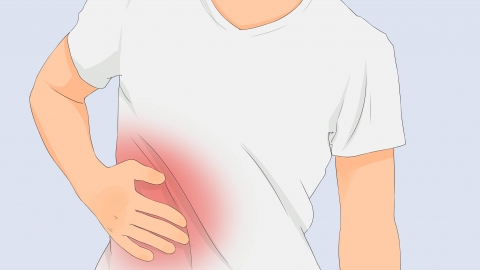How to eliminate gallbladder polyps
Generally, gallbladder polyps may be caused by excessive intake of greasy food, long-term late-night habits and irregular作息 (作息乱 refers to disordered作息 patterns), chronic cholecystitis irritation, coexistence of gallstones and polyps, or abnormal cholesterol metabolism. It is recommended to seek timely medical attention, identify the underlying cause, and then improve the condition under a doctor's guidance through general treatments, medications, surgical interventions, etc. A detailed analysis is as follows:

1. Excessive intake of greasy food: Long-term consumption of high-fat and high-cholesterol foods may lead to abnormal bile composition, causing cholesterol deposition and formation of polyps. Adjust your diet by reducing intake of fried foods, fatty meats, and animal offal, and increase consumption of vegetables, fruits, and whole grains. Control daily fat intake to prevent further enlargement of the polyps.
2. Long-term late-night habits and irregular作息: Staying up late disrupts the metabolic rhythm of the liver and gallbladder, leading to impaired bile excretion and potentially promoting polyp formation. Maintain regular作息 patterns, ensure 7-8 hours of sleep daily, avoid sleeping after midnight, allow sufficient rest for the liver and gallbladder, and promote normal bile secretion and excretion.
3. Chronic cholecystitis irritation: Prolonged inflammation of the gallbladder may stimulate mucosal hyperplasia and result in polyps, often accompanied by occult pain in the upper right abdomen. Patients should follow medical advice to use anti-inflammatory and bile-promoting medications such as Xiaoyan Lidan tablets, ursodeoxycholic acid capsules, and Dannings tablets to alleviate inflammation, control polyp growth, and undergo regular ultrasound follow-ups to monitor changes in polyp size.
4. Gallstones coexisting with polyps: Long-term friction from gallstones against the gallbladder wall can induce mucosal hyperplasia and polyp formation, potentially worsening pain. If the polyp diameter exceeds 1 cm or stones repeatedly cause discomfort, laparoscopic cholecystectomy should be performed to remove the gallbladder along with the polyps and stones, preventing complications.
5. Abnormal cholesterol metabolism: Disordered cholesterol metabolism in the body may lead to cholesterol deposition on the gallbladder wall, forming polyps. Patients should follow medical advice to use lipid-regulating medications such as simvastatin tablets, atorvastatin calcium tablets, and rosuvastatin calcium tablets to manage blood lipids and slow the progression of polyps.
In daily life, maintain moderate physical activity such as walking or jogging to enhance metabolism, control weight, and prevent obesity. Regular gallbladder ultrasound examinations are recommended to monitor polyp changes. If rapid polyp growth or worsening abdominal pain occurs, promptly collaborate with your doctor to adjust the treatment plan.






